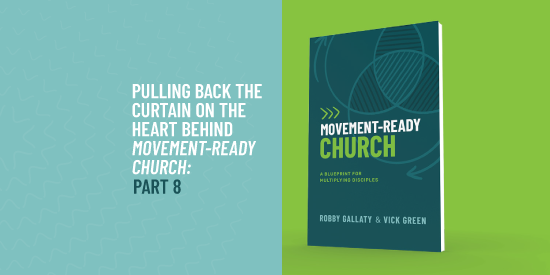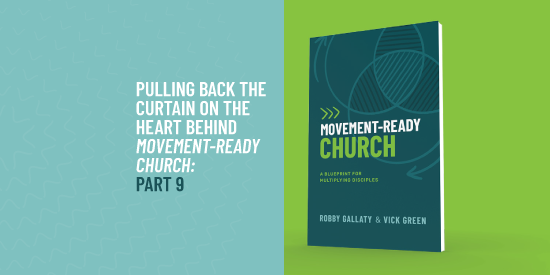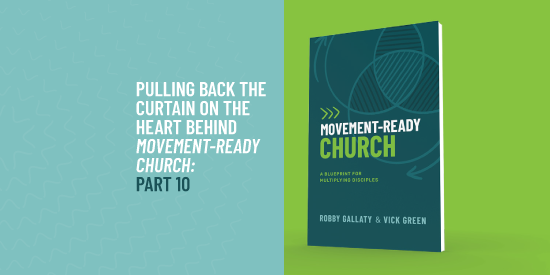If I asked everyone reading this to raise their hand if they’ve ever heard something like the following phrase, I would imagine almost every single one of you would raise your hand. “Are you going to heaven after you die?” It has been the question people ask before altar calls. It’s been asked on door-to-door evangelistic outings. It’s been used as an entry question to a gospel conversation.

So much of our experience with heaven, especially in the church, has been tailored this way: it is the place you go to after you die if you’ve been saved by Jesus. While this is not wrong—heaven certainly refers to a place God is preparing for us—if we only think of it in that way, we’re only getting half of the picture. Heaven was never meant to be a place we merely look forward to one day. It’s something we can experience here and now.
Thinking on Both Hands
If you walked up to an ancient Jewish Rabbi and asked him, “Did you choose God or did God choose you?” He would answer, “Yes to both.” In our western mindset, we’re not used to thinking about things that seem opposed to each other both being true at the same time. But the same answer applies to the question of heaven. Early in Jesus’ ministry, He began to preach, “Repent, for the kingdom of heaven is at hand” (Matthew 4:17). Following Jesus’ lead, Paul preached something similar: “But our citizenship is in heaven, and from it we await a Savior, the Lord Jesus Christ” (Philippians 3:20). Both of them knew full well that heaven was a place we go to be with the Lord after we die. But both of them also understood that heaven is a kingdom you become a citizen of long before you die, so long as Jesus is your Savior. If you live under the rule of a king or queen, you are called a subject. Being the subject of a kingdom has two aspects associated with it:
- You are an heir to all of the benefits that kingdom has to offer. Just like if you are a citizen of the United States, you are a recipient of every right given to us in the Constitution, a citizen of heaven is given every right God affords them. We have been freed from the debt of sin (Romans 6:6-7). We have been given eternal life (John 5:24). We have been given “every spiritual blessing in the heavens in Christ” (Ephesians 1:3).
- You have the responsibility of acting like a citizen of that kingdom. Of course, you have the option of going off on your own, of living your own way, of abandoning the Kingdom’s rules—but in doing so, you’ll be missing out on the abundant life promised to you by the King.
Servant to One Master
Jesus certainly had a lot to say about living as a Kingdom citizen, but every single time, it dealt with issues of the heart. One of the clearest ways we can see it is when He talked about money. Treasure is a fantastic measure of someone’s heart, because what they do with things that have a limited supply of shows where their priorities lie. So when Jesus preached in His most famous sermon about money, He said, ““No one can serve two masters. Either you will hate the one and love the other, or you will be devoted to the one and despise the other. You cannot serve both God and money” (Matthew 6:24). This is not limited to money, of course; you can substitute anything in the world in for it. Power. Fame. Respect. Recognition. Entertainment.
At the end of the day, living as a subject of the Kingdom of Heaven boils down to one essential question: “Who is your master?” The answer to that question, to which Kingdom you belong to, will have immediate effects on the way you live.
If you would like to read more about exactly what it looks like to live as a subject of the Kingdom of Heaven, I’ve written a book called Here and Now: Thriving in the Kingdom of Heaven Today.


